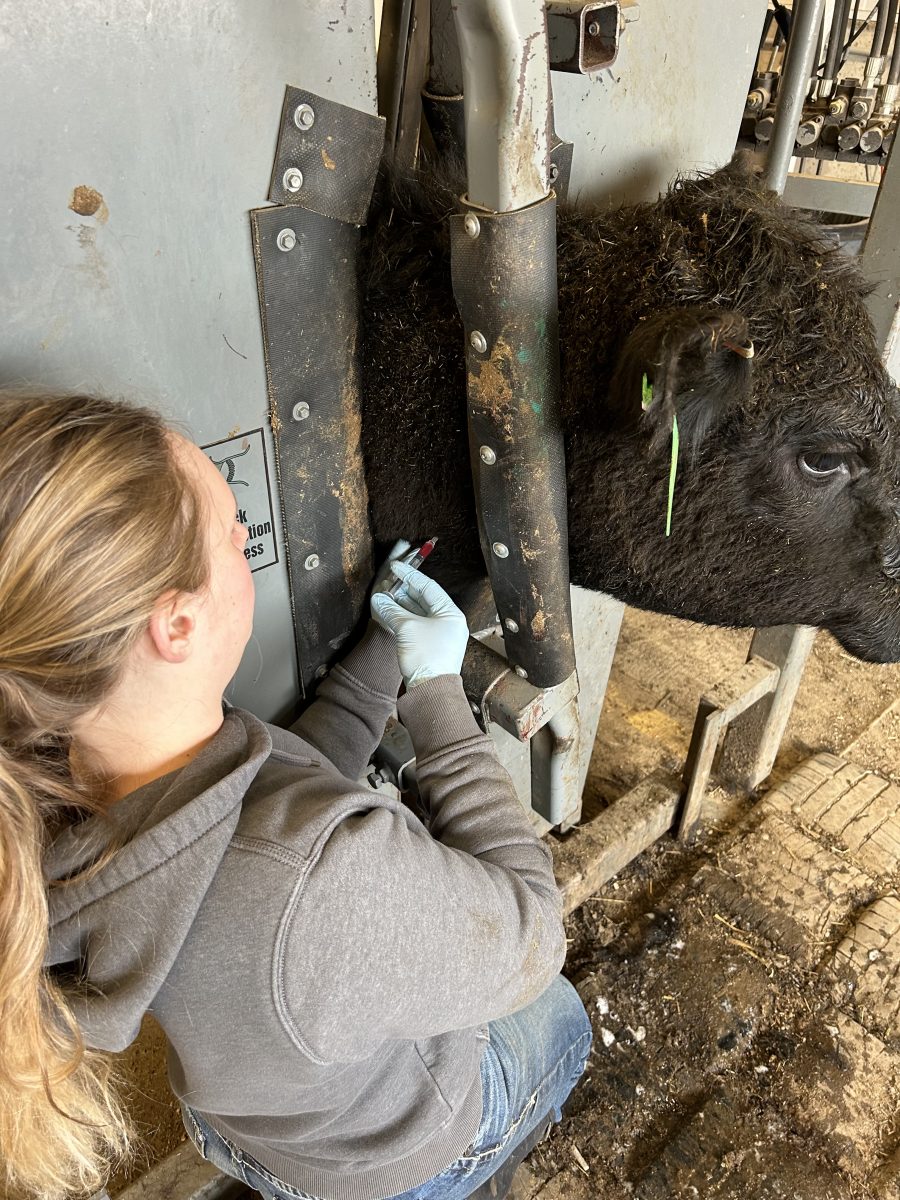Fair forum gives farmers a voice
September 21, 2005
Miranda Rieman
Food stamps, wildlife areas and the price of American food are just a few items that will be affected by the 2007 farm bill.South Dakotans had a chance to shape that legislation during a Sept. 7 farm policy forum, held in Huron.Michelle Osterman, a freshman agronomy and pre-optometry major from Conde, attended the three-hour listening session, hosted by the United States Department of Agriculture.”I was interested in knowing more (about the farm bill). I just knew the basics,” she said. Osterman, this year’s state FFA secretary, was one of around 100 present at the DakotaLand Stage on the state fair grounds.Under Secretary of Agriculture Tom Dorr and South Dakota Secretary of Agriculture Larry Gabriel occupied the stage, “but did just a lot of listening,” said Osterman. In his opening comments, Dorr, a former northern Iowa farmer, told the crowd that the USDA is working to develop a ” and efficient support system.” Gabriel said that the upcoming farm bill should “respond to the changes that have taken place.”Attendees were asked to share their comments in response to six questions posed prior to the session. The questions covered topics like the farm policy effect on young farmers and ranchers, financial assistance for those in the industry,and research and development in agriculture.An Avon area farmer, who has been in the business for more than 50 years, said, “I’m not overly optimistic that they’re going to come up with the ultimate farm bill. The only farm bill they haven’t tried yet is no farm bill,” he said, suggesting they look into the current subsidy program. Mike Stahly, president of the South Dakota Cattlemen’s Association, expressed support of feedlots as a way to keep more generations on the farm. Building feedlots, dairies and hog operations are ways farmers can expand with less land, he said.”We need to somehow make the rules make sense. We need the rules to be applied across the county and boards equally,” said Stahly, referring to zoning and permitting. Several people approached one of the four open microphones to ask for continued financial backing of certain sections of the farm bill, like the Conservation Reserve Program or rural development programs.”I’ve seen farm bills good for conservation and bad for conservation. We’ve got a good one — let’s not screw it up,” said an employee of the South Dakota Department of Game, Fish and Parks. Others discussed global trade and marketing.”We don’t feel we should form our next farm bill around the World Trade Organization,” said Bill Chase, of the South Dakota Corn Growers Association. This was the 15th forum of its kind that the USDA has held across the nation.Osterman said the listening session was both interesting and important.”I learned more about how others felt about the farm bill. It was nice to hear all of the different view points,” she said. Although there were few college-age forum goers, Osterman said that it’s good for her generation to be more aware of what’s going on.”I think it’s important to think about what our future is going to hold,” she said.The last farm bill was developed in 2002.




















